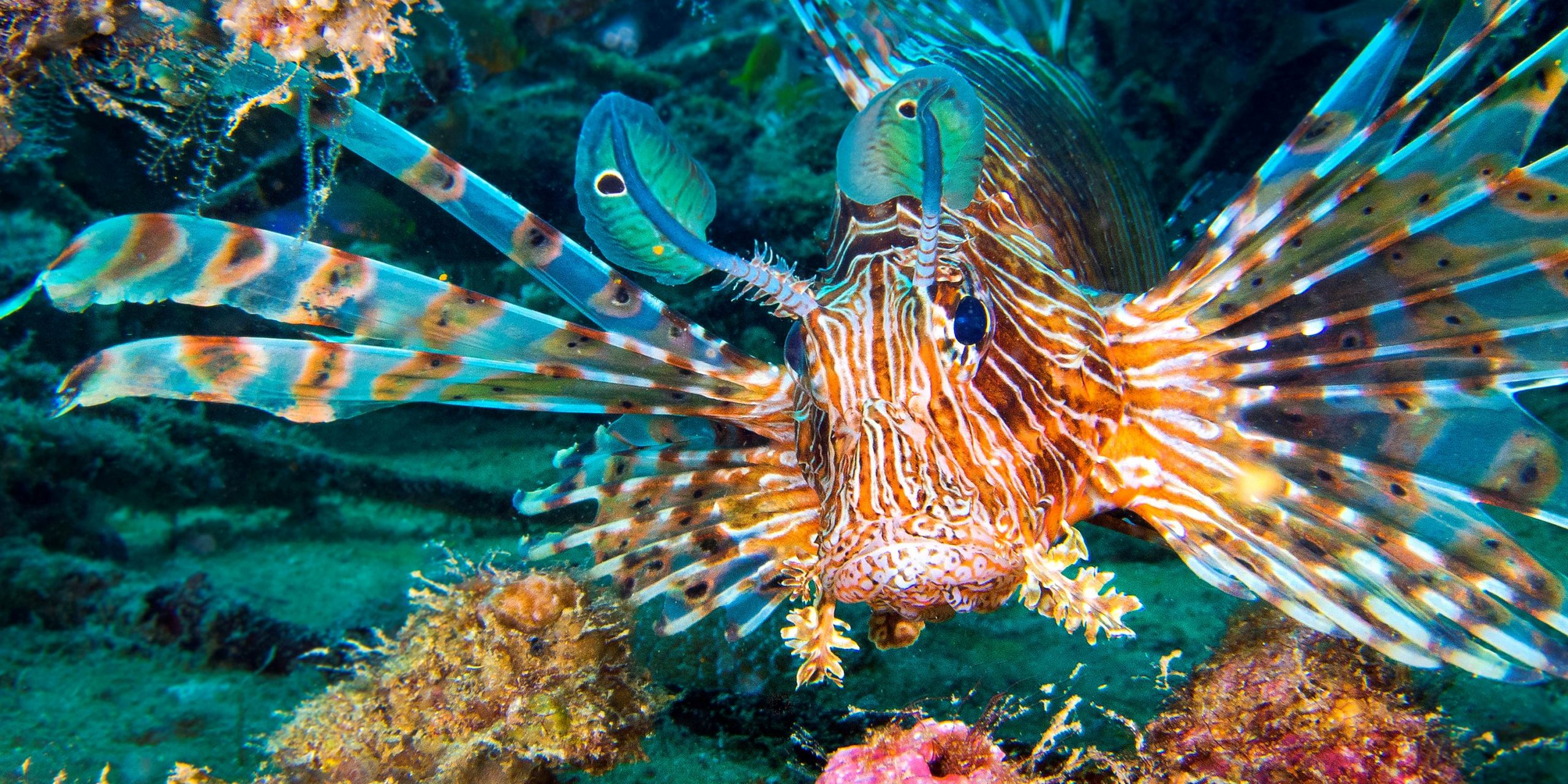Threat of lionfish
Living in the breathtakingly beautiful Turks & Caicos Islands (TCI), we are intimately connected to the stunning marine environment that surrounds us. From the crystal-clear waters to the vibrant coral reefs teeming with life, our island paradise is not just our home; it’s a precious ecosystem that we are committed to preserving for generations to come. At the forefront of this commitment is our dedication to combating the invasion of lionfish, an insidious threat to our delicate underwater world.
Lionfish, with their striking appearance and graceful movements, may seem innocuous at first glance. Yet, beneath their mesmerizing exterior lies a destructive force that jeopardizes the health of our reefs and the survival of countless native species. Originating from the Pacific or Indian Oceans, these invasive predators have spread like wildfire throughout the Caribbean, Tropical Atlantic, and Gulf of Mexico, leaving a trail of ecological devastation in their wake.
The repercussions of the lionfish invasion are profound. Native species, such as the invaluable parrotfish, face relentless pressure from these voracious predators, disrupting the delicate balance of our marine ecosystems. Coral reefs, the lifeblood of our oceans, suffer as lionfish decimate crucial reef-associated fish populations, leading to cascading effects that undermine the resilience of these vital habitats.
Recognizing the urgent need to confront this threat, we urge our community to join us in the fight against lionfish. Through vigilant monitoring and reporting efforts, such as the lionfish sighting form provided by the Turks & Caicos Reef Fund, we can track the spread of these invaders and implement targeted strategies for their removal. Every lionfish sighted while snorkeling or diving is a valuable piece of data that contributes to our understanding of their movements and behavior, empowering us to take proactive measures to mitigate their impact.
But why resort to spearfishing to control lionfish populations? It’s a question that echoes through our conservation efforts, prompting reflection on the necessity of such measures. While lionfish indeed possess a captivating allure, their unchecked proliferation poses an existential threat to our marine ecosystems. Spearfishing has emerged as one of the most effective means of curbing their numbers, offering a tangible solution to stem the tide of their invasion.
The parallels with other invasive species serve as sobering reminders of the perils of ecological disruption. From the cane toad’s toxic spread in Australia to the zebra mussel’s relentless encroachment in North America, the consequences of unchecked invasions reverberate across continents, exacting a heavy toll on native biodiversity and human infrastructure alike.
In the face of this ecological crisis, concerted action is imperative. Initiatives spearheaded by organizations like the School for Field Studies Center for Marine Resource Studies (SFS CMRS) demonstrate the power of collaborative research and community engagement in combating the lionfish invasion. Through hands-on field exercises and data collection efforts, students and researchers alike play a pivotal role in unraveling the mysteries of lionfish ecology and devising effective management strategies.
Moreover, public awareness and engagement are crucial components of our collective response to the lionfish invasion. By patronizing dive shops that support lionfish culling initiatives and participating in lionfish derbies and festivals, we can actively contribute to the reduction of lionfish populations while savoring the delectable rewards of sustainable dining.
As we navigate the complexities of managing invasive species, it’s clear that our journey is far from over. While localized culling efforts may offer temporary reprieves, the long-term solution lies in fostering a deeper appreciation for the intrinsic value of coral reefs and promoting holistic approaches to conservation. By harnessing the power of community action, education, and innovation, we can safeguard our marine heritage and ensure a brighter, more sustainable future for the Turks & Caicos Islands and beyond.


